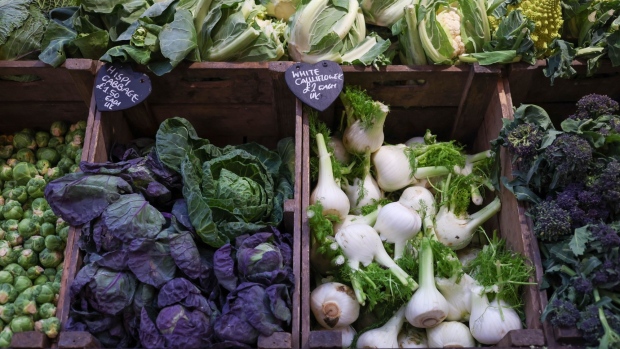Jan 31, 2023
Inflation in UK Shops Hits Record Despite Broader Easing
, Bloomberg News

(Bloomberg) -- Prices in UK stores rose at their highest rate since at least 2005 in January, with retailers offering fewer discounts than during the festive period.
The British Retail Consortium said shop price inflation accelerated to 8%, a record for an index that started in 2005, and an increase from 7.3% in December. Food price increases hit 13.8%, with sugar, alcohol and fruit and vegetables all particularly affected.
Prices are steadily rising for consumers even as broader measures of inflation start to ease in the UK. Shoppers spent more than expected over Christmas as they organized family gatherings without Covid restrictions, but rising inflation meant that they got less for their money.
“Prices are yet to peak and will likely remain high in the near term,” said Helen Dickinson, chief executive officer at the BRC. “Retailers still face ongoing headwinds from rising energy bills and labor shortages.”
Higher food prices mean consumers have less to spend on non-essential items. The UK’s antitrust regulator has started a review into the pricing of groceries.
Costlier food has also meant that consumers are increasingly visiting non-food budget retailers. Almost a fifth of parents are buying groceries from stores like Poundland and B&M European Value Retail SA, according to research from Red Tractor, a food standards group, and YouGov.
There are also signs that buoyant retail sales over Christmas were largely thanks to consumers taking on more debt. That’s left shoppers facing elevated credit card bills at the start of the year.
“Consumer demand is likely to be weak in the first quarter due to the impact of energy price increases and for many, Christmas spending bills starting to arrive,” said Mike Watkins, head of retailer and business insight at NielsenIQ.
Many retailers have kept their profit outlooks unchanged despite a rise in sales at Christmas, as they remain wary of how rising prices will weigh on shoppers.
In a sign of the strain retailers are under, Tesco Plc and Asda both recently announced job cuts. Supermarkets’ margins are under pressure as they try to keep prices down to protect their market share.
©2023 Bloomberg L.P.


